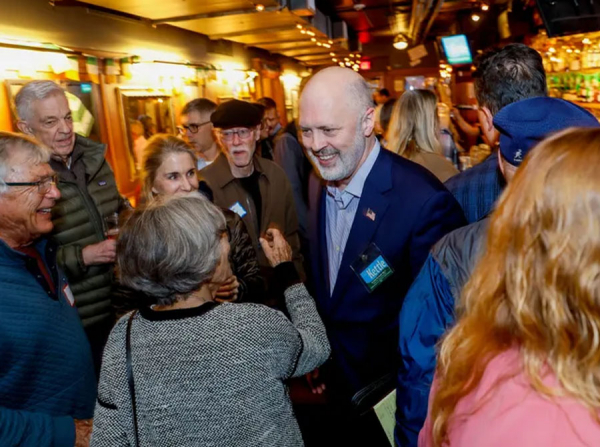Exactly ten years ago, Seattle burst onto the political scene with its left-wing experimentation.
The outgoing mayor in 2013 dubbed himself "America's most progressive mayor." The new mayor surpassed this claim, stating that he would turn Seattle into "America's most progressive city."
It was also the year when Seattle elected its first socialist, marking a time of heightened concern about inequality and a shift towards politics characterized more by protest and purity than coalition-building and compromise.
For a while, voters enjoyed casting their ballots to the left. Seattle became the first major city to adopt a $15 minimum wage, experimented with democracy vouchers, and allowed concert hall workers to unionize. The city also took on the responsibility and eventually levied a tax on the behemoth, Amazon.
But it's all over now. Seattle is no longer the most progressive city.
On Tuesday, voters rejected all this activism in favor of plain pragmatism. Voters seemed to want less idealism and more focus on results.
Currently, there are four strong progressive voices on the city council, and initial results suggest that three of them could potentially be replaced by more moderate newcomers.
In the district of socialist Kshama Sawant, who is retiring to fully dedicate herself to activism, a more moderate candidate, Joy Hollingsworth, has outpaced the leftist Alex Hudson. This shift, from Sawant to Hollingsworth, supported by Mayor Bruce Harrell, signifies a significant change in both tone and council politics.
Similarly, in West Seattle, outgoing progressive Lisa Herbold is likely to be replaced by Rob Saka, a more centrist advocate. Progressive activist Maren Costa is trailing by nearly 18 points.
All three incumbent council members were trailing in Tuesday's results. It's too early to judge their fate as further vote counts can sometimes fluctuate by 10% or more. But it shows the hurdles they face with historically low approval ratings.
Most likely, Dan Strauss from Ballard's 6th district will survive. (He's only trailing his opponent, Pete Henning, by two points.) It's not coincidental that Strauss made political adjustments over the past year, diverging from his previous stances on protest politics, such as defending the police.
The results signify a victory for business circles that poured $1.2 million into outside spending on these races. They outspent labor six to one, and labor unions may regret this gap.
Alongside the 2021 elections where Harrell defeated a more progressive mayoral candidate, and voters overwhelmingly chose a Republican for city attorney, these elections mark the end of a decade of experimental progressivism in Seattle. This is true regardless of whether some of the incumbents prevail.
What will it be replaced with?
Well, it's important to note that in Seattle, when we talk about someone being "moderate," it means they are what we're used to calling liberal Democrats. These elections are more about a shift towards less polarizing political styles.
As Hollingsworth stated at a forum I moderated last month, "I'm a Black queer woman who runs a cannabis farm. When did that become moderate?"
Her point is that Seattle is still as liberal as ever. It's more about moving away from megaphone politics.
I think the surest sign of what's coming is what happened later on the same day at City Hall.
Sawant introduced another resolution pushed by activists calling on the Seattle City Council to demand a ceasefire in the Gaza Strip. However, none of her eight colleagues supported her proposal, and it was rejected without a vote. She berated the council in anger, and a crowd incited by Sawant erupted in chants. The meeting had to be adjourned for 10 minutes.
Performative, divisive, populist to the end. On Tuesday, voters asked for a break from all of that.

